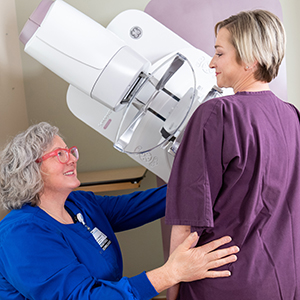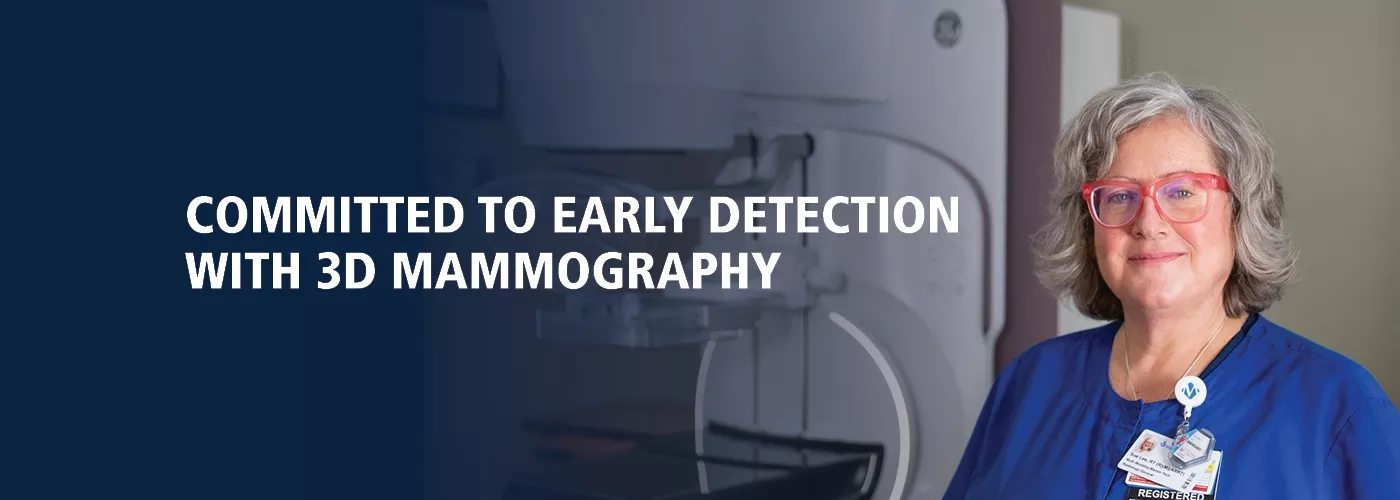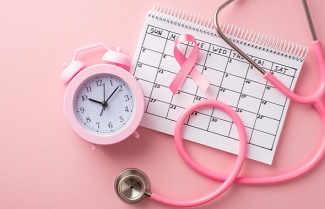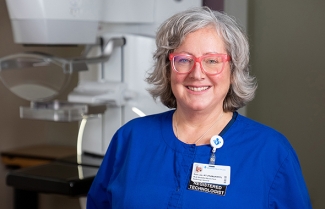Mammography Near You
One in eight women are impacted by breast cancer – and approximately 75 percent of women diagnosed with breast cancer have no family history of the disease. When detected early, breast cancer is easier to treat. 3D mammography screening, now the standard at all Munson Healthcare screening locations, takes the most advanced, low-dose imaging to detect, diagnose, or rule out breast cancer.
This life-saving screening is recommended annually for women 40 and older. If you’re due for a screening, or if you’ve never had a mammogram before, schedule your 3D mammography today.
Schedule your Mammogram
Call to schedule your annual 3D mammography screening at a convenient location near you. No referral is needed for this important annual screening. Appointments can be made at all locations except Manistee by calling 1-800-968-9292.

- Cadillac Hospital
- Charlevoix Hospital
- Grayling Hospital
- Kalkaska Memorial Health Center
- Manistee Hospital: 231-398-1114
- OMH Medical Group – Indian River
- OMH Medical Group – Lewiston
- Otsego Memorial Hospital
- Paul Oliver Memorial Hospita
- Prudenville Community Health Center
- Smith Family Breast Health Center in Traverse City
No referral needed
For easy, convenient scheduling, no referral is needed at any of our 11 screening locations. Please check with your insurance provider for more detailed coverage information.
30-minute (or less) appointments
Your 3D mammogram can be scheduled on weekdays at any time of your choosing without the need to take the day off.
Covered by most insurance
Annual mammography screening is typically covered by insurance, with little or no out-of-pocket cost to you. Check with your individual insurance provider for more details.
What is 3D Mammography?
Munson Healthcare is committed to early detection and prevention of breast cancer. That’s why we now offer the latest, advanced 3D mammography technology in all our locations.
3D mammography (digital breast tomosynthesis) allows for improved detection of small breast cancers by up to 30 percent. The more detailed images also help reduce callbacks from screening mammograms by as much as 40 percent. While we use 3D for all patients, it is especially important for those who have an increased risk of developing breast cancer or who have dense breast tissue (about 50% of women do).


